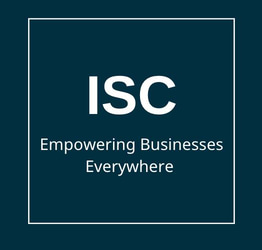Loan to Directors
Are your Director's loans compliant? 🚨 How Section 185 (Loan to Directors) of the Companies Act, 2013 safeguards your Company's finances. Discover how complying this section leads to stronger governance, investor trust and sustainable growth🌟.
6/13/20254 min read


Let's understand Section 185 of the Companies Act 2013, which deals with "Loans to directors, parties related to director and any person in whom any of the director is interested".
The Purpose of the Section:
This section aims at preventing companies from giving out loans, guarantees, or security for loans to their directors or people/entities closely related to them, unless very specific conditions, as prescribed, are met. The goal is to avoid situations where directors might use company's money for their personal benefit or for entities they control, potentially harming the company's financial health and the interests of other shareholders.
Here's a breakdown of each part:
185(1) The strict "No-Go" Zone, prohibits the Company:
A company cannot, directly or indirectly, give a loan (even if it's just recorded as a debt in the company's books) or provide a guarantee/security for a loan taken by:
* Its own directors.
* Directors of its "holding company" (the company that owns it).
* Partners or relatives of any of these directors.
* Any firm (like a partnership business) where any of these directors or their relatives are partners.
In essence: A company generally can't lend money or back loans for its directors, their family, or businesses they're closely involved with as partners.
185(2) The "Maybe, With Strict Conditions" Zone, this subsection does not talks about loan to directors, rather it specifies certain conditions under which loan can be given to "any person in whom any of the director of the company is interested".
Now, there's a small opening, but it comes with a lot of hoops to jump through. A company can give a loan, guarantee, or security to "any person in whom any of the director of the company is interested" if:
* Special Resolution: The shareholders of the company must pass a "special resolution" in a general meeting. This means at least 75% of the shareholders who vote must agree to it.
* Full Disclosure: When asking shareholders to vote, the company must provide a detailed explanation. This explanation needs to tell them:
* Exactly how much the loan/guarantee/security is for.
* The specific purpose for which the person receiving it will use the money.
* Any other important facts.
* Business Use Only: The money borrowed must be used by the recipient company only for its main business activities. It can't be for something unrelated or personal.
* What does "any person in whom any of the director of the company is interested" mean? This is a key definition:
* Private Company: A private company where the director is also a director or a member (shareholder).
* Controlled Body Corporate: Any company (body corporate) where the director (or two or more directors together) controls at least 25% of the voting power.
* Obedient Body Corporate: Any company whose management (Board, MD, Manager) usually acts according to the instructions of the lending company's Board or its directors.
In essence: A company might be able to lend to certain companies or entities connected to its directors, but only if shareholders (75% approval) agree after full disclosure, and the money is used strictly for the recipient's main business.
185(3) The "Allowed Always" Zone (Exceptions to the rules), this is the key subsection, which allow loan to directors
This part lists situations where the restrictions in subsection (1) and (2) do not apply. These are specific scenarios where it's considered acceptable:
* Loans to Managing/Whole-Time Directors as part of their job:
* Employee Perk: If the loan is part of the standard employment conditions offered to all employees (e.g., a housing loan scheme, vehicle loan scheme for all staff).
* Approved Scheme: If the shareholders have specifically approved a scheme (again, by special resolution) that allows for such loans to managing or whole-time directors.
* Companies whose ordinary business is lending money: If the company is genuinely in the business of providing loans, guarantees, or securities (like a bank or a finance company). However, they must charge interest on these loans at a rate that is at least as good as the current yield on government securities of a similar duration (e.g., if it's a 3-year loan, the interest rate should be at least as much as what a 3-year government bond pays). This prevents them from giving sweetheart deals to directors.
* Holding Company to Wholly Owned Subsidiary:
A parent company (holding company) can lend money to its 100% owned subsidiary (wholly owned subsidiary).
A parent company can also provide guarantees or security for loans taken by its 100% owned subsidiary.
* Holding Company Guaranteeing Subsidiary Loan from Bank:
A parent company can provide a guarantee or security for a loan taken by its subsidiary company from a bank or financial institution.
NOTE : The loans made under these exceptions (holding company to subsidiary) must be used by the subsidiary for its principal business activities.
In essence: Some specific situations are exempt, like loans to executive directors as a common employee benefit, companies that are in the business of lending, and a parent company dealing with its fully owned subsidiaries, provided the money is used for legitimate business purposes.
Why is this section important?
This section is crucial for good corporate governance. It aims to:
* Protect Shareholder Money: Prevent directors from misusing company funds for their personal gain or for entities they control, which could put the company's assets at risk.
* Promote Transparency: Ensure that any permissible loans to related parties are fully disclosed and approved by shareholders.
* Prevent Conflicts of Interest: Reduce situations where a director's personal interests might conflict with the best interests of the company.
Indosphere Consultants
Accounting | Taxation | Compliance
Subscribe to our Articles!
business@indosphereconsultants.com indosphereconsultants@gmail.com
+91 7417243242
© 2025. All rights reserved.
Quick links
Contact us
